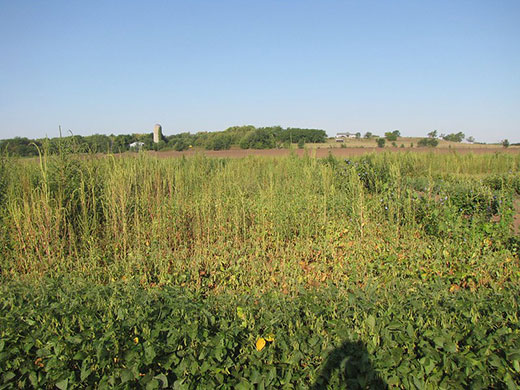
K-State researchers are asking Kansas farmers, crop advisors and others to complete a short survey regarding their challenges combating weeds in their area of the state. | Download this photo.
Researchers seeking input about weed challenges for Kansas farmers
‘Help us to help you’ by completing survey, scientist says
June 26, 2020
HAYS, Kan. – Every year Kansas farmers wage a silent but persistent battle with weeds that rob their crops of valuable moisture and nutrients in the soil and reduce crop yields.
Compounding the problem is the fact that even as herbicides are developed to combat them, some weeds develop resistance to the herbicide, which then becomes less effective over time.
At stake are billions of dollars in economic losses in North America alone, according to a seven-year study by the Weed Science Society of America conducted from 2007 to 2013.
To help researchers determine which weeds pose the most serious threats to Kansas farmers and what they are doing currently to manage the problem, Kansas State University researchers are asking producers, crop consultants, crop certified advisors and extension agents to complete a short online survey. The information gathered will help guide research on innovative, cost effective and integrated weed management practices and to further improve outreach programs across the state.
The survey, developed by weed researcher Vipan Kumar, who is based at the K-State Agricultural Research Center in Hays, will remain open until July 15. The research team asks that Kansas farmers, consultants, advisors and extension agents in all parts of the state participate in the survey. Questions can be directed to Kumar at vkumar@ksu.edu.
The information is especially important, Kumar said, because many growers are battling herbicide resistant weeds. His message to producers is “help us to help you” by completing the survey.
Because Kansas’ topography, climate, and cropping systems change dramatically from east so west, it’s difficult to get a clear picture of weed problems in all parts of the state, he said, and without traditional field days because of COVID-19, this year it’s even more difficult to have those formal and informal conversations about the current challenges.
Even when field days can occur, they are good starting points for addressing farmers’ questions, but only in a certain geographical area. The survey will provide a better picture statewide, Kumar added.

